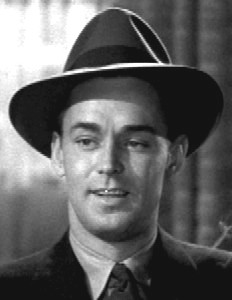Holmes had Moriarty, but who did Nero Wolfe have?
For three books, crime boss Arnold Zeck served as an antagonist for Nero Wolfe and Archie Goodwin.
And Be a Villain
A man who writes a horseracing tip sheet is poisoned on a radio talk show while drinking the sponsor’s product. Wolfe is hired to solve the case by the sponsors and the show’s star.
On the positive side, this mystery had many twist and turns as to who was even the intended victim. At one point, Wolfe gets so disgusted with the show’s staff for lying to him and wasting days of his time that he turns a key piece of information over to Inspector Cramer in hopes that Cramer will find the killer and earn Wolfe’s fee for him. When this plan fails, Archie executes a daring move to get Wolfe back on the case.
This particular volume had a few moments where it became a tad tedious. It takes until Chapter 4 for an exact agreement to be reached as to who will be paying Wolfe and how much. Then we have pages consumed by detailing when the staff came in to be interviewed in what turned out to be pointless and fruitless and interviews because they had all agreed to conceal a vital fact. Perhaps, this helps us sympathize with Wolfe when he walks off the case as we’re tempted as well.
But, no one ought to walk away. The book’s look at the world of 1940s radio is worth the read for fans of old time radio. Also, when Wolfe does get back on the case, the mystery continues to twist and turn as we wrestle with who was the target and who had opportunity commit the crime.
In And Be a Villain, Zeck plays a minimal role. He threatens Wolfe to be careful where he treads in investigating the case. Wolfe figures out what Zeck’s role in the crime the lead to the murder he’s investigating, but as the fact isn’t essential to the police investigation, he leaves Zeck out of it.
Perhaps, this is the one of the great challenges with the Zeck trilogy. While Holmes and Moriarity were driven by ego and intellectual vanity ever closer towards a fatal confrontation, Wolfe would rather not deal with Zeck if he had to and all things considered, Zeck would rather not rid the world of Wolfe because it would make the world less interesting. Not, that they’re not willing to do what they have to do, but as I finished listening to the audiobook of And Be a Villain. I knew it was going to take something big to get this rivalry off the ground.
Rating: Satisfactory
The Second Confession
Something would come in The Second Confession. Wolfe takes a case for a rich industrialist who suspects his daughter’s girlfriend is a communist. Zeck calls Wolfe and makes it clear that he doesn’t want the case investigated and punctuates his demand by shooting up Wolfe’s plant room and destroying thousands of dollars in plants.
However, when the young man is murdered, everything is reversed. Zeck wants the man’s killer caught and brought to justice. Wolfe begins an investigations with plenty of caveats offered to everyone involved. Along the way, Wolfe takes on the American Community Party to get information needed to seal his case. The Second Confession shows both the anti-communist leanings of the Montenegrin-born Wolfe as well as Stout. With plenty of twists and a nice bit of political intrigue thrown in, this was a fun and multi-faceted Wolfe story.
Wolfe begins to realize that a confrontation with Zeck may be unavoidable and so he begins to make preparations just in case. However, all things being equal, he’d still rather leave Zeck alone.
Rating: Very Satisfactory
In the Best Families
As The Second Confession ended with Zeck congratulating Wolfe on solving the case and Wolfe once again reiterating his independence, readers have a sense that this can’t go on forever. In The Best Families things at last come to a head. Wolfe agrees to help a woman who merely wants to know where her husband gets his money. Zeck shows his disapproval of Wolfe taking on the case, by intercepting a package of expensive sausages and putting tear gas in its place.
After yet another menacing phone call from Zeck, Wolfe and Archie confer on what to do. Archie figures that since their last encounter with Zeck, they’d taken 40 cases, and Wolfe thinks that running in Zeck every forty cases is quite likely. Wolfe and Archie had to decide whether to oppose Zeck or to acquiesce to him and back off whatever case he didn’t want them on. Archie thought that without the other, either one of them might have given in to Zeck, but neither wanted to be seen as cowardly by the other. So their course was set, though Archie didn’t know what that course would entail.
Archie goes to spend a weekend with the client and her family to get a feel for her husband, and while he’s there, the client is murdered. He calls up Wolfe and fills him in. True to that old saying, “When the going gets tough, the tough get going,” Wolfe got going, fleeing the Brownstone, setting up alternate arrangements for his orchids and servants, placing the house on the market, and ordering Archie not to follow him. as he leaves his old friend Marco as Power of Attorney.
The next few chapters after Wolfe’s disappearance are fascinating for fans of the Wolfe stories as we get an idea of what the characters would be like in Wolfe’s absence. Theodore sulks, Fritz shows almost maternal concern, and Cramer shows up to offer some friendly advice. Cramer’s appearance is noteworthy as it begins with Cramer showing that he’s a smart cop and ends with him taking a swing with Archie when the latter suggests Cramer is on the take.
Archie takes center stage in these chapters. Wolfe’s disappearance in a bad spot as the DA believes that Wolfe knows who committed the murder and that Archie knows where Wolfe is. Due to Archie’s reputation as a skillful liar, no one believes him when he insists he has no idea where Wolfe has disappeared to.
In addition to this, while Archie is allowed to collect his salary and stay in the house until a sale occurs, he has been left with nothing to do other than follow up on unfinished cases and collect payments from clients on payment plans. Wolfe left instructions for Archie with Marco that are incredibly vague, “You are to act in the light of experience as guided by intelligence.”
Archie is clearly miffed by Wolfe not leaving him holding the bag. He also misses working with Wolfe. However, unlike a more modern assistant, Archie follow Wolfe’s command not to search for him.
The Zeck series does a good job showcasing the complexity of the Archie-Wolfe relationship, with its various elements that are understood by the two, even if they are never spoken. At times, the relationship seems close to Father-Son or a Mentorship.
Wolfe can be protective of Archie. Indeed, when Archie first learned of Zeck in And Be A Villain, Wolfe ordered Archie to forget he’d heard the name. And there’s a sense that Wolfe was continuing that protective behavior by leaving Archie out of the loop during the dangerous preliminary stages of his plan against Zeck, only bringing Archie in when it was absolutely necessary.
Archie doesn’t care for being protected, nor was Nero Wolfe’s legman meant to sit around for months waiting for Wolfe to make a move. So, therefore Archie stops taking a salary from Wolfe and opens his own private detective agency. He hopes his first case will be to solve the murder of Wolfe’s last client. When he fails to get cooperation, he drums up business and prides himself on clearly more than Wolfe paid him. Still, when Wolfe comes back, there’s no question of staying on his own.
Given that there were 25 years of Wolfe books after In The Best Families, it’s not a spoiler to say that Wolfe returns and triumphs over Zeck. However, I will say that the final showdown is anti-climatic after the fascinating character drama that drives the middle of the story. The final showdown between the two (if we can even call it that) is disappointing.
In the final analysis, Zeck disappoints because he is really not equal to the task in going against Wolfe. To be sure, he is a dangerous technocrat, but he’s still a technocrat. Zeck builds systems that keep him safe: a network of B, C, and D operatives that shield him while turning a profit. The original racket that incited the murders in And Be a Villain.It seems that nearly every racket that Zeck is involved in is one where Zeck thinks he’s figured how to avoid any danger.
In the midst of his foolproof systems, and risk-free crimes, Zeck seems weak at anticipating human behavior, expecting it to fall into neat patterns. Zeck handles Wolfe with typical mafioso style and forces a confrontation that he can’t win. Wolfe’s understanding of human behavior and his ability to see the flaws in Zeck’s systems assured the outcome as soon as Wolfe stepped out of the Brownstone.
The actual mystery of who killed Wolfe’s client is relatively simple. And indeed, it’s surprising that it remained a secret for so long as the police and was given the key clue early in the book. Readers could be excused as Stout directed our attention to the character driven story and Wolfe’s dealing with Zeck.
So on one hand, In the Best Families had a weaker mystery and a disappointing villain, but it also offered some insights into Archie and the characters in Wolfe’s world. The middle part of the book is interesting enough to carry the rest of the book. So, overall I’ll give the book:
Rating: Satisfactory
You can find all the Nero Wolfe books in Kindle, Audiobook, and book form on our Nero Wolfe page.
If you enjoyed this post, you can have new posts about Detective stories and the golden age of radio and television delivered automatically to your Kindle.
This post contains affiliate links, which means that items purchased from these links may result in a commission being paid to the author of this post at no extra cost to the purchaser.
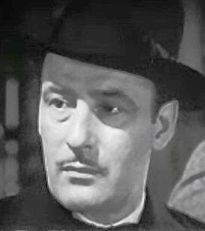

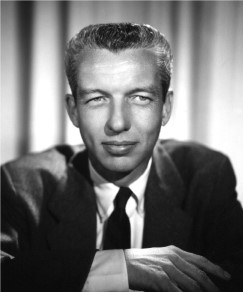
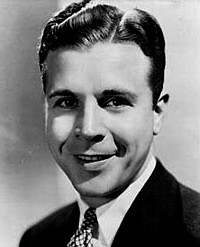
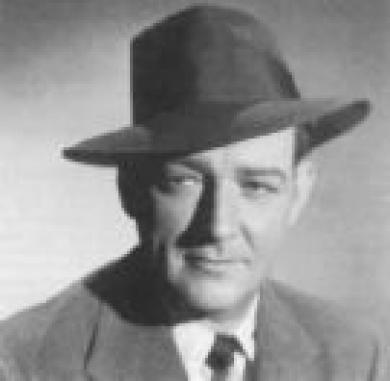

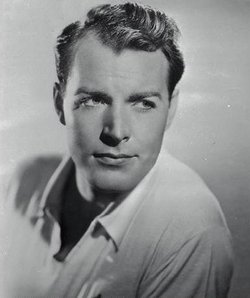 Mystery is My Hobby starred Glen Langan as Barton Drake, a mystery writer who solves crimes. Each episode was a lighthearted whodunit aided by the upbeat suave performance of Langan as the sleuth. Langan was practically the opposite of Raymond Chandler’s hard-boiled sleuth. You can’t get much further opposite of “Trouble is my business” than “Mystery is my Hobby.” At the end of each episode, Barton Drake would remind us that “mystery is my hobby.”
Mystery is My Hobby starred Glen Langan as Barton Drake, a mystery writer who solves crimes. Each episode was a lighthearted whodunit aided by the upbeat suave performance of Langan as the sleuth. Langan was practically the opposite of Raymond Chandler’s hard-boiled sleuth. You can’t get much further opposite of “Trouble is my business” than “Mystery is my Hobby.” At the end of each episode, Barton Drake would remind us that “mystery is my hobby.”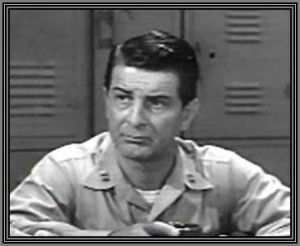 The war changed many things – the face of the earth and the people on it.
The war changed many things – the face of the earth and the people on it.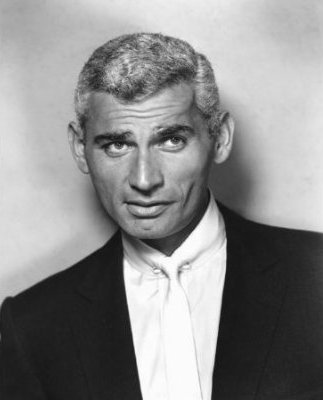 After the Mutual Network’s comedy mystery version of Michael Shayne ended, Bill Rouseau took his turn with the character. The result was one of the most sterling of the hard boiled detective shows.
After the Mutual Network’s comedy mystery version of Michael Shayne ended, Bill Rouseau took his turn with the character. The result was one of the most sterling of the hard boiled detective shows.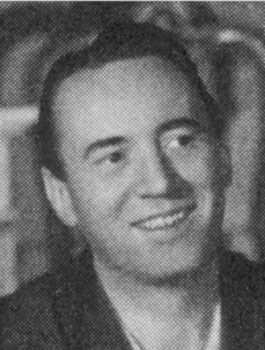 Boston Blackie was an epic character for around half a century with silent films, talkies, radio, and finally television. In 1944, Boston Blackie first came to radio with Chester Morris playing Boston Blackie, the role he was most remembered for in films. A syndicated version was launched by Frederick Ziv with Richard Kollmar, who was otherwise best known for the live morning radio show he did his wife, Breakfast with Dick and Dorothy.
Boston Blackie was an epic character for around half a century with silent films, talkies, radio, and finally television. In 1944, Boston Blackie first came to radio with Chester Morris playing Boston Blackie, the role he was most remembered for in films. A syndicated version was launched by Frederick Ziv with Richard Kollmar, who was otherwise best known for the live morning radio show he did his wife, Breakfast with Dick and Dorothy. 